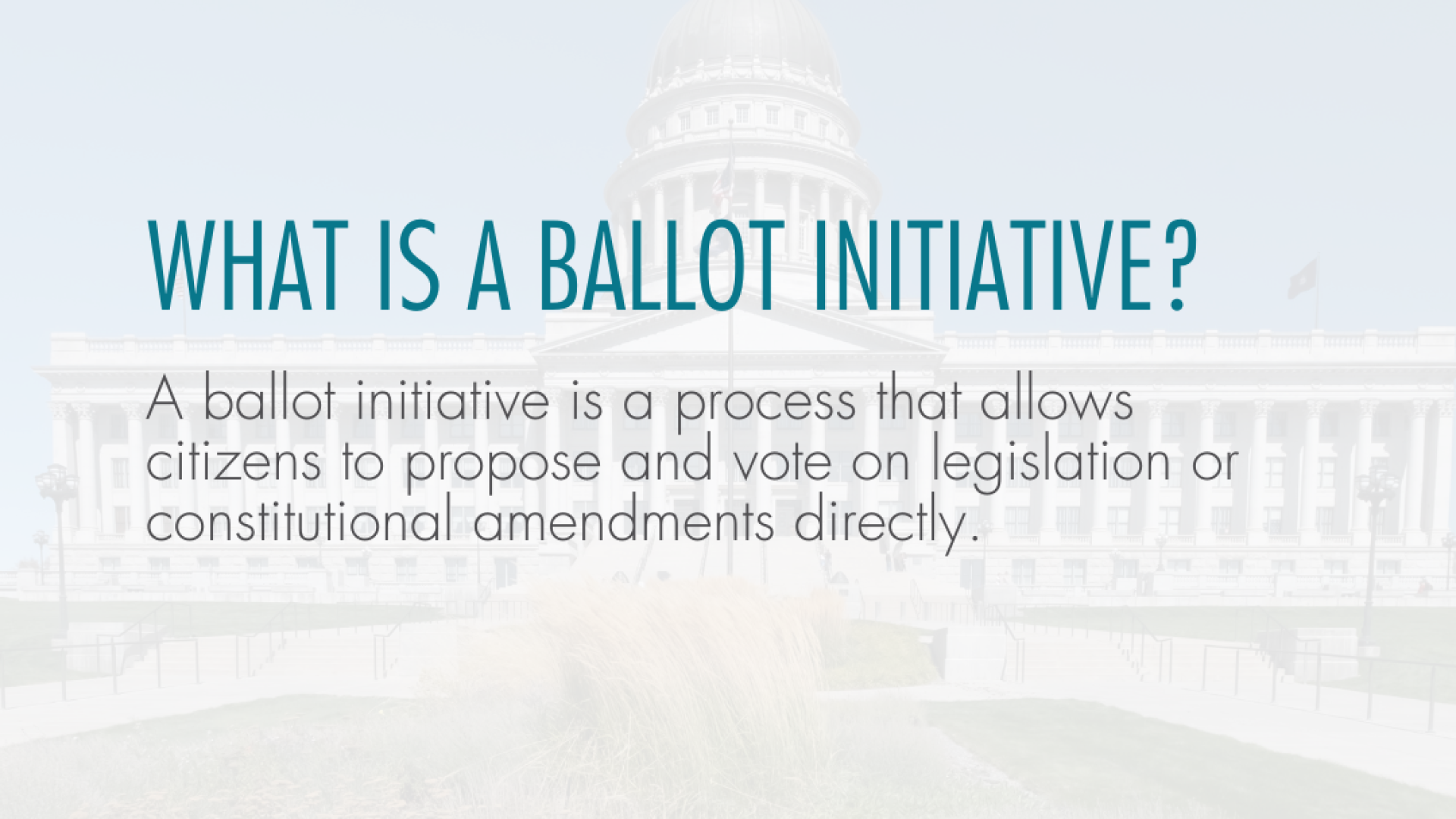Understanding Ballot Initiatives

Understanding Ballot initiatives and their Importance in Utah
Ballot initiatives are a vital tool for citizens to directly participate in the legislative process, enabling them to propose and vote on laws without the need for legislative approval. In Utah, the initiative process has played a significant role in shaping public policy and holding the government accountable.
Importance of the Initiative Process
The initiative process allows citizens to bypass the legislature and directly propose laws that reflect their concerns and priorities. In 2018, Utah voters successfully passed three significant ballot initiatives: Proposition 2 (medical cannabis), Proposition 3 (Medicaid expansion), and Proposition 4 (independent redistricting commission). However, after these initiatives passed, the legislature made changes to each of them, sparking controversy and concerns about legislative interference.
Supreme Court Ruling
A recent unanimous Supreme Court ruling affirmed the integrity of the initiative process by stating that once voters approve a ballot initiative, the legislature cannot unilaterally change it. This ruling is crucial for preserving the initiative process moving forward, ensuring that initiatives reflect the will of the voters without being altered by political interests after the fact.
The protection of ballot initiatives from legislative tampering ensures that citizens’ voices are respected and that the initiative process remains a powerful tool for democratic governance in Utah. By engaging in this process, Utah residents can continue to shape their state’s laws and policies directly, holding their elected officials accountable to their preferences and concerns.
How Do You Run a Ballot initiatives in Utah?
Single-Subject Rule
In Utah, any proposed ballot measure must adhere to the single-subject rule, meaning it can only address one issue, which must be clearly expressed in its title. This rule helps to prevent confusion and ensures that voters are not misled by measures that could combine unrelated subjects into one proposal.
Subject Restrictions
There are also specific subject restrictions for ballot initiatives in Utah. For example, any measure that deals with the regulation of wildlife, such as the methods or seasons for hunting, requires a two-thirds supermajority vote to pass. This high threshold ensures that such significant decisions reflect a broad consensus.
Fiscal Review
A fiscal impact estimate of the measure is prepared to inform voters about the financial implications of the proposed initiative. This information is crucial for voters to make informed decisions at the ballot box.
Collecting Signatures
To qualify for the ballot, proponents must gather signatures from a specified percentage of voters across various districts in Utah. This distribution requirement ensures that initiatives have broad-based support across the state.
Signature Requirements
The number of required signatures is tied to the number of active voters as of January 1 following the most recent regular general election. This means that the signature threshold can vary over time based on changes in voter registration, reflecting current levels of civic engagement.
Ballot initiatives empower Utah residents to hold their government accountable and directly influence the laws that govern them. By participating in this process, citizens can ensure their voices are heard and their interests are represented effectively.